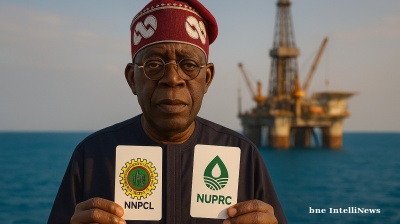Markiza, the largest commercial television in Slovakia, has axed its popular political debate programme Na Telo (To the body) shortly after its host, Michal Kovacic, accused management on air of censorship and warned of the “Orbanisation” of the media in Slovakia.
Kovacic was subsequently backed by 112 of his fellow journalists and colleagues from television, who warned the management there would be collective action and gave the management three days to commit to running Na telo again, DennikN reported.
“The fight over the shape of news at the television Markiza is going on for whole months, we face pressure not just from politicians, but also from our own management,” Kovacic said in a statement released at the end of the last Na telo Sunday programme on May 26.
It is the latest flare-up in the stand-off between Markiza editors and management. Earlier this year, Slovakia’s artists, journalists and ex-politicians addressed an open letter to the Czech Kellner family, which owns Markiza through the Prague-based PPF financial group, urging them not to curtail news on the television station in exchange for good business relations with the sitting left-right cabinet of populist Prime Minister Robert Fico.
Fico – who was shot and seriously injured earlier this month – has denied his cabinet was in informal talks with PPF, which besides media is also involved in Slovakia's digital toll system and transportation in the country.
Liberal media in the country have been repeatedly slammed by cabinet members, who also boycotted Markiza, independent dailies SME and DennikN and online news outlet Aktuality.sk shortly after forming a government last autumn.
“Attempts at censorship in the [political] discussions began straight this year and through daily pressure, and Televizne noviny [Television news] faced it too. Thanks to our editors, who did not get scared away and stuck together, [the news] are still in a different shape than that into which we are pushed by the management,” the statement by Kovacic continues.
Kovacic recalled that Na telo has “become the most cited and the most watched discussion in Slovakia” despite a several weeks long boycott from the cabinet members, and it won a journalist award.
“Slovakia is right now living through the fight of Orbanisation of our media, but in public, the future of [public broadcaster] RTVS is debated. This fight is, in fact, going on everywhere. It occurs quietly and in a creeping way. Even though it does not look that way, and if we do not stop it, it will have damaging outcomes on Slovak democracy,” Kovacic’s statement concludes.
Markíza said in a statement that it was immediately suspending Na telo because Kovačič “abused the broadcast time to present personal opinions in violation of the law on media services and the journalist’s code of ethics”.
Fico’s cabinet is pushing ahead with legislation aimed at restructuring RTVS, which in effect will eject the current management at the public broadcaster and increase the government control over it. Andrej Danko, leader of the far right SNS party in the ruling left-right government, has also threated to come up with “a very tough law on the right to protection of a person against the media”.
The ruling coalition is likely to rely on its narrow majority of 79 in the parliament of 150 to pass the legislation but the parliamentary session has been delayed following the assassination attempt on Fico.
News

Fuel prices in Kyrgyzstan rocket as Ukraine steps up drone strikes on Russian refineries
Central Asian country relies on Russia for nine-tenths of its fuel.

El Salvador leads Latin America's democratic decline, global watchdog warns
The latest IDEA report warns El Salvador faces the fastest democratic erosion in Latin America, with security policies under Bukele raising concerns over freedoms, judicial independence, and long-term institutional damage.

Nigerian president advances oil bill placing NNPCL under control of Finance Ministry, upstream regulator
President Bola Tinubu has endorsed a bill that would undermine the "independence" of NNPCL, shifting ownership to the Finance Ministry and handing new powers to upstream regulator NUPRC.

‘Tinder Swindler’ Simon Leviev detained in Georgia on Interpol red notice
Shimon Yehuda Hayut gained worldwide notoriety thanks to the 2022 Netflix documentary 'The Tinder Swindler', which detailed how he allegedly posed as the son of billionaire diamond tycoon to scam women he met on Tinder.
_1758026150.jpg)



